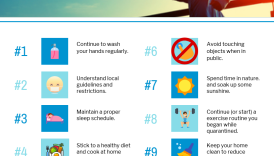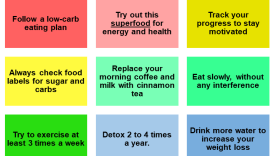Achieve Optimum Wellness with WebMD’s Proven Strategies

Introduction to Optimum Wellness
Importance of Maintaining Good Health
In today’s fast-paced world, many individuals often overlook their health amidst busy schedules and endless responsibilities. Maintaining good health is paramount not just for longevity but for a fulfilling life. When one prioritizes their well-being, they set the stage for physical vitality, mental clarity, and emotional resilience. Consider this: a friend of mine, who used to burn the candle at both ends, often found themselves feeling exhausted and unmotivated. It wasn’t until they embraced a wellness routine that included a balanced diet and regular exercise that they discovered a renewed sense of energy and purpose. This transformation illustrates the profound impact of good health on overall life satisfaction. Benefits of maintaining good health include:
- Achieve Optimum Wellness with WebMD’s Proven Strategies
- Introduction to Optimum Wellness
- Importance of Maintaining Good Health
- Overview of WebMD's Proven Strategies
- Nutrition Tips for Wellness
- Balanced Diet for Overall Health
- Superfoods to Boost Well-Being
- Fitness Routines for Optimal Health
- Effective Workouts for Physical Fitness
- Importance of Regular Exercise
- Mental Health Practices for Wellness
- Stress Management Techniques
- Mindfulness and Meditation Benefits
- Sleep Hygiene for Well-Being
- Tips for Quality Sleep
- Creating a Relaxing Bedtime Routine
- Improved energy levels
- Enhanced mood and mental health
- Reduced risks of chronic illnesses
- Increased productivity and focus
- Better quality of sleep
Overview of WebMD’s Proven Strategies
To help individuals embrace a life of optimum wellness, WebMD offers a variety of proven strategies. These strategies are rooted in comprehensive research and practical applications that can be integrated into everyday life. Here are key areas WebMD focuses on to promote good health:
- Nutrition: Emphasizing a balanced diet rich in fruits, vegetables, lean proteins, and whole grains.
- Fitness: Encouraging regular physical activity tailored to individual needs and preferences.
- Mental health: Promoting stress management techniques and the importance of mental wellness.
- Sleep hygiene: Highlighting the significance of restful sleep and creating a conducive sleep environment.
For anyone looking to enhance their wellness journey, these strategies serve as a valuable roadmap. By making conscious decisions in these areas, individuals can cultivate a lifestyle that supports overall well-being. Thus, as we delve deeper into specific tips and techniques, remember that embracing these principles can lead to a healthier, happier you.
Nutrition Tips for Wellness
Balanced Diet for Overall Health
Transitioning from the fundamental aspects of optimum wellness, the role of nutrition cannot be overstated. A balanced diet is a cornerstone of good health, providing the essential nutrients our bodies need to function optimally. It involves consuming a variety of foods in the right proportions, ensuring that the body gets the necessary vitamins and minerals for energy, growth, and overall well-being. For example, a colleague of mine decided to overhaul their eating habits after experiencing frequent fatigue. By incorporating a balanced diet rich in whole foods—like leafy greens, fruits, whole grains, lean proteins, and healthy fats—they noticed a significant boost in their energy levels and mood. To achieve a balanced diet, consider these tips:
- Fill half your plate with fruits and vegetables: Aim for a rainbow of colors to maximize the nutrient diversity.
- Choose whole grains: Opt for brown rice, quinoa, and whole wheat bread over refined grains.
- Incorporate lean proteins: Include sources like chicken, fish, legumes, and nuts.
- Limit added sugars and saturated fats: Replace sugary treats with healthier alternatives like yogurt or fruit.
Superfoods to Boost Well-Being
In addition to maintaining a balanced diet, incorporating superfoods can take your nutrition to the next level. Superfoods are nutrient-rich, offering unique benefits that enhance your overall wellness. Some popular superfoods include:
- Blueberries: Packed with antioxidants, they help combat oxidative stress.
- Kale: A leafy green that’s loaded with vitamins A, C, and K, along with fiber.
- Quinoa: A complete protein source, rich in essential amino acids, making it perfect for plant-based diets.
- Salmon: High in Omega-3 fatty acids, which support heart health and reduce inflammation.
By integrating these superfoods into daily meals, you can experience heightened energy, improved digestion, and better mood regulation. Simple strategies, such as adding spinach to smoothies or incorporating nuts into breakfast, can effectively enhance your nutrient intake. Remember, small changes in your diet can lead to significant improvements in your health and well-being.
Fitness Routines for Optimal Health
Effective Workouts for Physical Fitness
Following a nutritious diet, the next significant pillar of optimum wellness is physical fitness. Engaging in effective workouts is essential not only for weight management but also for overall health. Various forms of exercise can be tailored to fit individual preferences, making it easier to stay committed and enjoy the process. For instance, a friend of mine struggled to remain motivated with typical workout routines. However, after discovering a mix of high-intensity interval training (HIIT), yoga, and dance classes, they found a regimen that was both enjoyable and effective. This versatility allows for a well-rounded approach to fitness that can prevent boredom and promote consistency. Here are some effective workout ideas to consider:
- Cardiovascular Training: Activities like running, cycling, or swimming increase heart rate and improve endurance.
- Strength Training: Using weights or resistance bands helps build muscle and supports metabolic health.
- Flexibility and Balance: Incorporating yoga or Pilates enhances flexibility and core stability, which is vital for injury prevention.
- Group Classes: Joining local fitness classes or online sessions fosters community and accountability.
To maximize effectiveness, aim for at least 150 minutes of moderate aerobic activity or 75 minutes of vigorous activity each week, combined with strength training on two or more days.
Importance of Regular Exercise
The significance of regular exercise extends far beyond physical appearance. It plays a crucial role in enhancing mental and emotional well-being, improving mood, and even boosting self-esteem. There’s a remarkable sense of accomplishment that comes from completing a workout, which can have a positive ripple effect throughout the day. Research supports the benefits of regular exercise, indicating that it can help to:
- Reduce symptoms of anxiety and depression
- Improve memory and cognitive function
- Enhance immune system function
- Promote better sleep patterns
Consider the early morning jogger who finds clarity and focus for the day ahead, or the weekend warrior who connects with friends while playing sports. These anecdotes highlight how integrating exercise into daily life cultivates a healthier lifestyle and fosters joy. Ultimately, incorporating effective workouts and appreciating the importance of regular exercise creates a solid foundation for optimum wellness. Celebrate your progress, stay mindful of your fitness journey, and remember that every small step counts towards a healthier you.
Mental Health Practices for Wellness
Stress Management Techniques
As we navigate through life’s challenges, the significance of mental health cannot be overlooked, especially as we consider how it intertwines with our overall well-being. Following a balanced diet and regular exercise, effective stress management techniques serve as essential tools in maintaining mental wellness. For example, a colleague of mine found themselves overwhelmed with work deadlines, leading to insomnia and anxiety. They discovered that by incorporating structured stress management techniques, such as time management and relaxation exercises, they could reclaim control over their mind and body. Here are some practical stress management techniques to consider:
- Deep Breathing: Taking slow, deep breaths helps calm the nervous system, making it easier to cope with stress.
- Physical Activity: Even a short walk or stretching can significantly decrease stress levels.
- Time Management: Prioritizing tasks using lists or digital reminders can help alleviate feelings of being overwhelmed.
- Connect with Nature: Spending time outdoors has a calming effect and can reduce anxiety.
Taking time each day to practice these techniques can create a significant shift in how stress influences your life.
Mindfulness and Meditation Benefits
Transitioning from stress management, embracing mindfulness and meditation is another powerful way to foster mental health. These practices encourage staying present, allowing individuals to become more in tune with their thoughts and emotions. For instance, after incorporating mindfulness meditation into my daily routine, I experienced a remarkable change in how I reacted to stressful situations. Instead of feeling overwhelmed, I learned to observe my feelings without judgment, enabling me to choose more constructive responses. The benefits of mindfulness and meditation include:
- Reduced Anxiety: Regular practice can lead to lower anxiety levels and improved emotional regulation.
- Enhanced Focus: Mindfulness promotes greater concentration, making it easier to stay present and engaged in daily activities.
- Better Emotional Health: Meditation encourages a more positive outlook, reducing symptoms of depression.
- Improved Resilience: Regular practitioners often find they can cope with challenges more effectively.
As you explore mental health practices for wellness, consider integrating stress management techniques and mindfulness exercises into your daily routine. Each small step fosters deeper connections with yourself, ultimately enhancing overall well-being and resilience in the face of life’s uncertainties.
Sleep Hygiene for Well-Being
Tips for Quality Sleep
As we delve deeper into the realm of mental health, one critical aspect that often goes unnoticed is the importance of quality sleep. Just as the body requires nourishment and movement, it equally demands adequate rest to function optimally. Quality sleep can dramatically improve mood, cognitive function, and overall health. For instance, a friend of mine used to consider themselves a night owl, often prioritizing late-night work over rest. However, they soon realized that the lack of sleep was impacting their productivity and emotional state. By adopting a few simple tips for better sleep, they noticed a remarkable transformation. Here are some effective tips for ensuring quality sleep:
- Maintain a Consistent Sleep Schedule: Go to bed and wake up at the same time every day, even on weekends.
- Create a Comfortable Sleep Environment: Ensure your bedroom is dark, quiet, and at a comfortable temperature.
- Limit Screen Time Before Bed: Reduce exposure to screens at least an hour before sleep, as blue light can interfere with melatonin production.
- Watch Your Intake: Avoid heavy meals, caffeine, and alcohol close to bedtime, as they can disrupt sleep patterns.
These changes can lay the groundwork for deeper, more restorative sleep.
Creating a Relaxing Bedtime Routine
Transitioning from tips to practical application, establishing a calming bedtime routine can further enhance the quality of sleep. This routine signals the body that it’s time to wind down, promoting relaxation and readiness for sleep. For instance, incorporating a bedtime ritual helped another friend of mine ease into sleep more comfortably. They began to embrace a sequence of activities that helped their body and mind shift gears after a busy day. Consider these elements to create a relaxing bedtime routine:
- Wind Down Time: Dedicate the last 30–60 minutes before bed to calming activities like reading or gentle stretching.
- Limit Stimulants: Exchange stimulating activities for more relaxing ones, such as journaling or meditative breathing.
- Soothing Environment: Use soft lighting, calming scents (like lavender), or soothing music to create a tranquil atmosphere.
- Mindful Reflection: Spend a few moments reflecting on the day’s positives, fostering a sense of gratitude and ease before sleep.
By prioritizing sleep hygiene and adopting a relaxing bedtime routine, individuals can significantly enhance their overall well-being. Remember, a well-rested mind is better equipped to handle daily challenges, allowing one to fully embrace life with enthusiasm and resilience.




